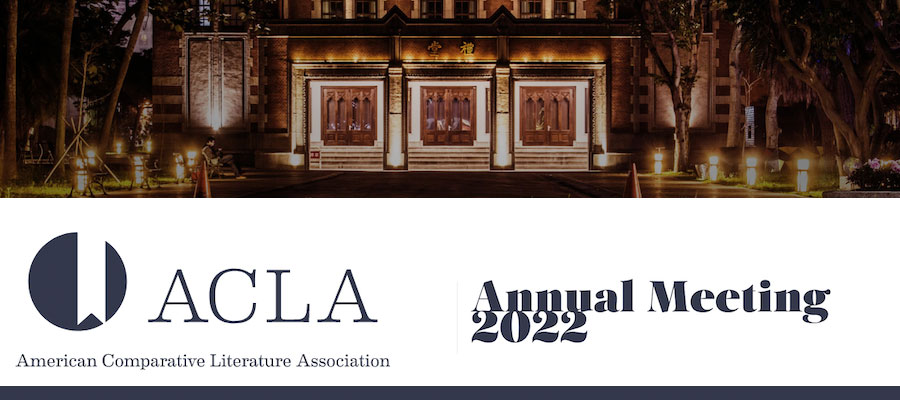Literatures of the Palaeoanthropocene, seminar at 2022 American Comparative Literature Association Annual Meeting, National Taiwan Normal University, June 15–18, 2022
This seminar seeks papers that address perspectives on nature and the environment in the literatures of the Palaeoanthropocene. “Palaeoanthropocene” refers to “the time interval before the industrial revolution during which anthropogenic effects on landscape and environment can be recognized but before the burning of fossil fuels produced a huge crescendo in anthropogenic effects,” or roughly 1780 CE. If “Anthropocene” demarcates the era during which fossil fuel consumption and other forms of environmental devastation are radically transforming the global climate and environment, Palaeoanthropocene refers to the earlier period during which human interventions in their ecosystems were already widespread, but were meaningfully distinct from those of the present.
Literatures of the Palaeoanthropocene feature representations of ecosystems that are radically different from those devastated by the consequences of the Anthropocene, from biodiversity unimaginable in the present era of mass extinction to landscapes now submerged for the sake of hydroelectric power. But these texts also show us that even in this period humans were responsible for drastic and often permanent change to the environments they inhabited. These interventions include deforestation, irrigation, mining, and the introduction of species to new environments. As scholars of literature, we also recognize that such texts do far more than simply capture information. Their authors operate within frameworks of genre and aesthetics that must be taken into account when attempting to use their literary writings as a medium through which to view their world.
Reframing the discussion of global literatures in the period often referred to as “the Middle Ages” or “medieval” through the framework of the Palaeoanthropocene is a way to call attention to a shared global condition of the distant past that is distinct from that of the present. At the same time, our goal is not to imply the existence of a uniform “Palaeoanthropocene culture” that can be understood as a global monolith. On the contrary, the global scope of this panel will bring to light the complexity and diversity of perspectives on the ecosystems of the Palaeoanthropocene, as well as the significance and consequences of the widespread practices that had already begun to transform them.
Potential topics include, but are not limited to:
- Analysis of environmental images and themes with attention to ecocritical theory, the sciences, or environmental history.
- Literary representations of biodiversity & ecosystems that have since transformed
- Writing that observes or imagines animal and other non-human agencies.
- Classification systems for natural phenomena and other forms of knowledge production.
Though welcome, submissions need not be transregional or comparative.
